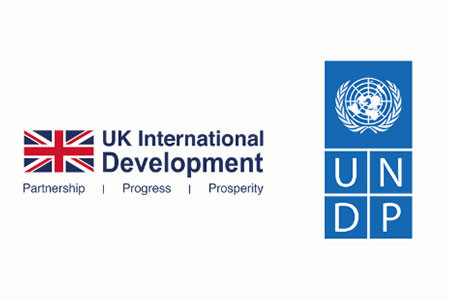The project “Overcoming points of contention: transgenerational coping with the legacy of the armed conflicts of the 90s in the territory of the former Yugoslavia” addresses the problems of insufficient public awareness and limited ability to critically process information on sensitive topics related to the conflicts of the 1990s and their consequences. The project also tackles the problem of a declining number of regional initiatives, joint activities, and the lack of a transgenerational approach to understanding crimes committed during the conflicts of the 1990s in the territory of the former Yugoslavia.
The project consortium consists of the Belgrade Open School (BOS) and the Belgrade Centre for International Law (BMK), supported by a team of collaborators, primarily researchers from post-Yugoslav countries who work on issues related to the 1990s conflicts and dealing with the past. Through the Mentorship Program and the Alternative Academic Program, the project will enable participants (undergraduates, young postgraduates, and representatives of civil society organizations) from post-Yugoslav countries and Albania to:
- critically examine key points of contention from the history of Yugoslavia’s breakup and the events of the 1990s;
- acquire concrete knowledge and skills for objectively assessing facts related to confronting the legacy of the 1990s conflicts, initiating and participating in cross-societal and cross-generational fact-based dialogues;
- create different types of content clearly articulating authentic viewpoints in various formats (ranging from policy proposals to museum exhibition concepts).
Through this approach, the project contributes to addressing the problem of insufficient knowledge of historical facts, legal terminology, and the broader social context of the Yugoslav breakup and its handling over the past 30 years. By using specific archival material (primary and secondary historical and legal sources, video, audio and photo documentation), specialized tools (policy proposals), as well as methodologies of critical analysis and debate, the project addresses unresolved issues and dilemmas about the recent past and deconstructs terms that have entered everyday usage without a true understanding of their meaning. In this way, the project makes a concrete contribution to dealing with the past and promoting reconciliation. The entire project is designed to ensure intergenerational (lecturers - mentors - participants) and cross-border knowledge transfer.
The project generates the following additional values:
- Providing project participants with the opportunity to engage within the European Higher Education Area (EHEA);
- Enabling the application of project results after its completion and scaling up the initiatives launched within it. The gender perspective will be incorporated in the following ways;
- Issues of the gender dimension of the 1990s armed conflicts will be integrated into the Mentorship Program and the Alternative Academic Program;
- Gender balance will be ensured among lecturers, mentors, and participants.
The project is enabled by the regional project Strengthening the Process of Transitional Justice in the Western Balkans, funded by the Government of the United Kingdom (UK) and implemented by the United Nations Development Programme (UNDP). The project will be implemented from September 1st 2025, to February 28th 2026.

 381 60 30 65 800
381 60 30 65 800






